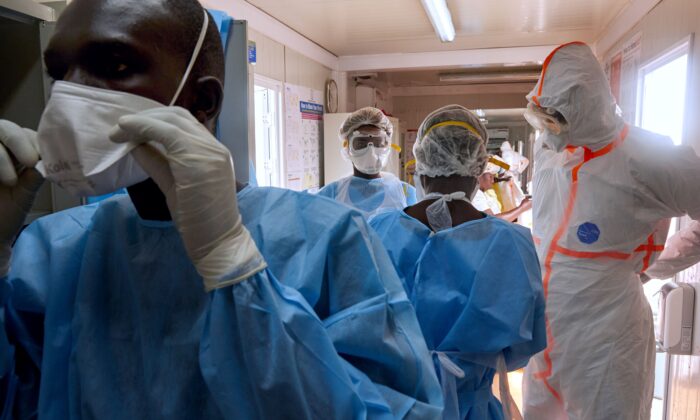
World Health Organization (WHO) says it has sent a rapid response team to South Sudan following the deaths of almost 100 people from a yet-to-be-identified disease.
Sheila Baya, a spokesperson for the WHO, told the BBC on Dec. 14 that the illness has killed at least 89 people in South Sudan’s Jonglei state.
“We decided to send a rapid response team to go and do risk assessment and investigation; that is when they will be able to collect samples from the sick people … but, provisionally, the figure that we got was that there were 89 deaths,” Baya said.
However, the WHO’s response has been complicated by recent severe weather and flooding in Fangak, the epicenter of the mysterious new disease, Baya said. A local South Sudanese health official told Baya that initial samples collected in the region returned negative tests for cholera, a bacterial disease that’s often associated with flooding.
WHO hasn’t issued a statement about the disease, and Baya provided no other details.
International charity Medecins Sans Frontieres (MSF), or Doctors Without Borders, which operates in South Sudan, said the flooding has ramped up pressure on health facilities.
“We are extremely concerned about malnutrition, with severe acute malnutrition levels two times the WHO threshold,” MSF said, “and the number of children admitted to our hospital with severe malnutrition doubling since the start of the floods.”
United Nations has also described the recent flooding as the worst in decades, affecting more than 780,000 people in the region.
“Women, children, and elderly people arrived exhausted and hungry,” Arafat Jamal, the United Nations High Commissioner for Refugees (UNHCR) representative in South Sudan, said in October about the flooding.
“Some had not eaten in days. Others are marooned on islands surrounded by water, sheltering under trees, and unable to cross to safety. Women are deeply worried about the health of their children, with the increased risk of infections from deadly water-borne diseases.”
Shumon Sengupta, country director in South Sudan for the humanitarian group Concern Worldwide, further elaborated on the situation in the country, which split from Sudan about a decade ago.
“ magnitude of the flooding this year has been immense. Over 200,000 people, more than a quarter of the local population in Unity State have been forced to leave their homes as a result of rising floodwaters,” he said in a statement.
“Families have been displaced and are sheltering on higher ground, in public buildings, or with neighbors or family. Access to basic services including health and nutrition support has been disrupted as clinics have been damaged, submerged in floodwaters, or are inaccessible.”
Pezou : 89 Africans Killed by Mystery Illness in South Sudan: WHO